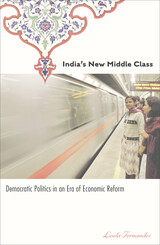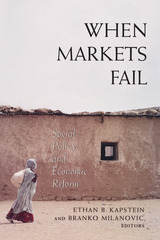3 books about Economic Reform

Economic Reform in China
Problems and Prospects
James A. Dorn and Wang Xi
University of Chicago Press, 1990
In this volume, distinguished Chinese and Western scholars provide a detailed examination of the problems associated with China's transition to a market-oriented system. A variety of reform proposals, aimed at resolving the contradictions inherent in piecemeal reform, are discussed along with the chances for future liberalization.
These clearly written and insightful essays address the roots of China's crisis. The authors focus on institutional changes necessary for a spontaneous market order and point to the close relation between economic reform and political-constitutional reform. Topics include the speed and degree of the transition, whether ownership reform must precede price reform, how inflation can be avoided, steps to depoliticize economic life, how to create an environment conducive to foreign trade and investment, and how to institute basic constitutional change and open China to the outside world.
The revolutionary changes now shaking the foundations of socialism and central planning in the Soviet Union and Eastern and Central Europe are sure to have an impact on China's future. Despite their seriousness, the events of Tiananmen Square may constitute only a temporary detour on the road toward a private market order. The essays in this volume help lay a rational framework for understanding China's present problems and for discussing the prospects for future reform.
These clearly written and insightful essays address the roots of China's crisis. The authors focus on institutional changes necessary for a spontaneous market order and point to the close relation between economic reform and political-constitutional reform. Topics include the speed and degree of the transition, whether ownership reform must precede price reform, how inflation can be avoided, steps to depoliticize economic life, how to create an environment conducive to foreign trade and investment, and how to institute basic constitutional change and open China to the outside world.
The revolutionary changes now shaking the foundations of socialism and central planning in the Soviet Union and Eastern and Central Europe are sure to have an impact on China's future. Despite their seriousness, the events of Tiananmen Square may constitute only a temporary detour on the road toward a private market order. The essays in this volume help lay a rational framework for understanding China's present problems and for discussing the prospects for future reform.
[more]

India’s New Middle Class
Democratic Politics in an Era of Economic Reform
Leela Fernandes
University of Minnesota Press, 2006
Today India’s middle class numbers more than 250 million people and is growing rapidly. Public reports have focused mainly on the emerging group’s consumer potential, while global views of India’s new economy range from excitement about market prospects to anxieties over outsourcing of service sector jobs. Yet the consequences of India’s economic liberalization and the expansion of the middle class have transformed Indian culture and politics. In India’s New Middle Class, Leela Fernandes digs into the implications of this growth and uncovers—in the media, in electoral politics, and on the streets of urban neighborhoods—the complex politics of caste, religion, and gender that shape this rising population. Using rich ethnographic data, she reveals how the middle class represents the political construction of a social group and how it operates as a proponent of economic democratization. Delineating the tension between consumer culture and outsourcing, Fernandes also examines the roots of India’s middle class and its employment patterns, including shifting skill sets and labor market restructuring. Through this close look at the country’s recent history and reforms, Fernandes develops an original theoretical approach to the nature of politics and class formation in an era of globalization.In this sophisticated analysis of the dynamics of an economic and political group in the making, Fernandes moves beyond reductionist images of India’s new middle class to bring to light the group’s social complexity and profound influence on politics in India and beyond.Leela Fernandes is associate professor of political science at Rutgers University, New Brunswick.
[more]

When Markets Fail
Social Policy and Economic Reform
Ethan B. Kapstein
Russell Sage Foundation, 2002
The sweeping political and economic changes of the past decade—including the spread of democracy, pro-market policies, and economic globalization—have dramatically increased the demand in developing countries for social programs such as unemployment compensation, pensions, and income supplements for the poor. When Markets Fail examines how emerging market economies in Eastern Europe, Latin America, North Africa, and the Middle East are shaping their social policies in response to these changes. The contributors—leading scholars of development and social policy—use detailed case studies to examine whether the emerging economies are likely to move toward European-style welfare systems, characterized by high unemployment benefits and large entitlements, or if they will opt for more austere, stripped-down welfare regimes. They find that much will depend on how well emerging economies perform economically, but that the political forces, ideological preferences, and historical backgrounds of each country will also play a decisive role. In his chapter on Central and Eastern Europe, Peter Lindert focuses on how aging populations and the fall of communism have fostered increased need for social assistance in the region. In contrast, Nancy Birdsall and Stephen Haggard highlight the positive role of democratization and Western-style social programs in promoting East Asian social policies. Zafiris Tzannatos and Iqbal Kaur argue that governments in North Africa and the Middle East must foster both human capital formation and competition in the market for social services if they are to meet the growing need for services. When Markets Fail presents some evidence that a global convergence in social policies may be taking place: as Europe slowly makes its welfare provisions less generous, the emerging market economies will be under increasing demographic and political pressure to make their social welfare systems more comprehensive. The book also examines the vital role that organizations such as the World Bank, the International Monetary Fund, and the Asian Development Bank can play in fostering effective social services in developing economies. Economic globalization and political liberalization have produced many economic winners around the world, but these forces have created losers as well. When Markets Fail addresses the problem of how governments in developing countries have responded to the plight of those losers through social policy. The success of these policies, however, remains sharply contested, as is their role in helping to achieve meaningful poverty reduction. When Markets Fail is essential reading for anyone interested in economic liberalization and its consequences for the developing world.
[more]
READERS
Browse our collection.
PUBLISHERS
See BiblioVault's publisher services.
STUDENT SERVICES
Files for college accessibility offices.
UChicago Accessibility Resources
home | accessibility | search | about | contact us
BiblioVault ® 2001 - 2024
The University of Chicago Press









